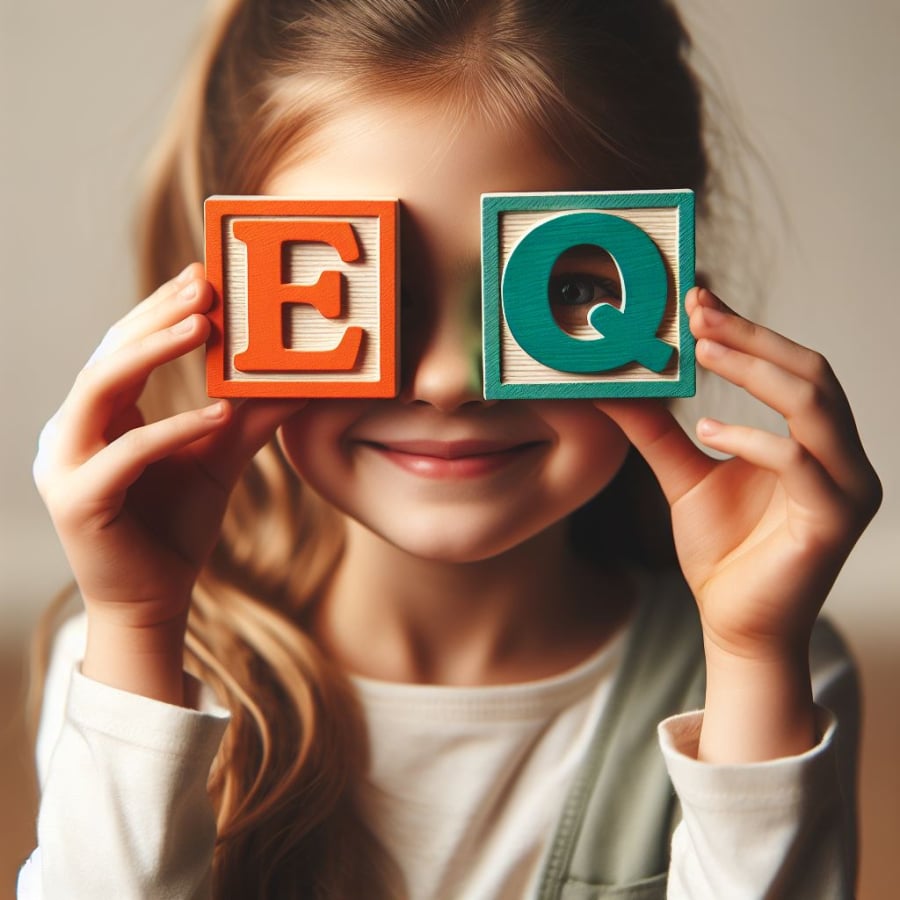Importance of Emotional Intelligence (EQ) in Children’s Success
A recent article from a Tsinghua University scholar, published in Sohu, highlights the importance that parents today place on developing emotional intelligence (EQ) in their children. This is based on the observation that successful individuals tend to have higher than average EQ scores.
“A close friend of mine expressed worry after realizing her younger child had low EQ. I wondered what was happening,” the author explains. “She has two kids with starkly contrasting personalities: Xiao Bao always has friends over, while Xiao Dao prefers to be alone or play only with her brother.”
“Xiao Bao tends to openly share the goings-on around him with everyone, while Xiao Dao appears reserved and sometimes self-absorbed,” the author describes.
According to the Tsinghua professor, EQ is not just a measure of intelligence but a reflection of a diverse set of skills, explaining why children with high EQ often achieve greater success due to their well-rounded development.
Therefore, parents should pay attention if their children exhibit certain qualities that may be signs of high EQ and avoid dismissing such observations.

According to the Tsinghua professor, EQ is not just a measure of intelligence but a reflection of a diverse set of skills
Emotional Stability
For an average person, emotions are often subject to the whims of the circumstances they face in life. At times, even a minor incident can cause them to lose emotional control, which can have dire consequences in their life.
In contrast, children with high emotional intelligence (EQ) typically exhibit emotional stability, independent of the situations or times they encounter. These individuals tend to make sound judgments and right choices amidst varying circumstances.
Self-Reliance in Actions
As parents guide and educate their children, they often expect self-sufficiency in tasks like household chores, personal grooming, and academics; however, children do not always meet these expectations.
Children with high EQ, however, tend to be self-motivated and proactive in their actions, reducing the need for frequent parental supervision or reminders.

Children with high EQ tend to be self-motivated and proactive in their actions
Farsightedness
Children with high emotional intelligence (EQ) often demonstrate an awareness that extends beyond immediate gratification; they are not easily swayed by short-term rewards. This trait also reflects their character: high-EQ individuals tend to excel at setting long-term goals and maintain a persistent commitment to pursuing them.
Posses Deep Empathy
Children with high EQ often possess a special ability to perceive and comprehend the emotions of others, allowing them to respond with sensitivity and respect in their interactions.
This fosters a personable, approachable, and compassionate nature that draws positive attention and affection from those around them. With this ability, they often establish strong social connections and gain support when facing life’s challenges.

Children with high EQ often possess a special ability to perceive and comprehend the emotions of others
Possess a Deep Sense of Self-Awareness
Children with high EQ have the ability to self-reflect and accurately perceive their own capabilities, avoiding either excessive self-confidence or unwarranted self-doubt. This self-awareness sets the stage for greater success in their future endeavors.
In contrast, some children may exhibit unrealistic self-confidence, lacking the abilities to back it up, while others suffer from excessive self-doubt, failing to demonstrate their true potential. Both types of children often face challenges in achieving success as they grow older.
How to Nurture High EQ in Children
– Teach them to cope with negative emotions, including encouraging them to share and discuss their feelings, and guiding them in healthy ways to process emotions.
– Bolster their self-confidence by avoiding negative criticism and offering praise instead, helping them to recognize and build on their strengths.
– Encourage them to make friends and participate in social activities to develop their interpersonal and communication skills.
– Foster self-reliance by avoiding excessive pampering and encouraging them to make their own decisions.
- Teach them to cope with negative emotions healthily and encourage them to share their feelings.
- Bolster their self-confidence by offering praise and helping them recognize their strengths.
- Encourage social interactions and participation in activities to develop interpersonal and communication skills.
- Foster self-reliance by allowing them to make their own decisions and avoiding excessive pampering.
“8 Things You Should Avoid Saying During a Job Interview”
Job interviews often involve a delicate balancing act between being frank and being too blunt. While it is important for candidates to be honest and show their true personalities, too much candor could lead to them forfeiting prospective job opportunities. In an ideal world, both sides would be able to have open and honest discussions about the job, yet this is not always possible in reality.



































